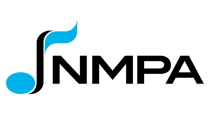This website uses cookies so that we can provide you with the best user experience possible. Cookie information is stored in your browser and performs functions such as recognising you when you return to our website and helping our team to understand which sections of the website you find most interesting and useful.
Business News Labels & Publishers
Songwriters voice concerns about proposed collecting society withdrawal
By Chris Cooke | Published on Friday 27 March 2015
An alliance of organisations representing songwriters around the world has published an open letter addressed to the US music publishing sector expressing concern at plans to pull song rights out of the American collective licensing system.
As previously reported, many American music publishers want to pull their digital rights out of performing right organisations ASCAP and BMI, so that they can do direct deals with services like Pandora. When such deals are done collectively, special rules governing collective licensing mean the licensee always has the option to take royalty disputes to court where a judge sets the rates, meaning the publisher’s negotiating hand is weakened.
In Europe, the big five publishers (Sony/ATV, Universal, Warner/Chappell, BMG and Kobalt) now all routinely do digital deals directly, albeit through partnerships with the collecting societies which still collect and distribute royalties once deals are done.
The major publishers in the US likewise started withdrawing their digital rights from BMI and ASCAP, but then a court ruling decreed that – under American collective licensing rules – rights owners can’t pick and choose what kind of services they licence collectively, they are either ‘all in’ or ‘all out’. Though being all out would involve publishers licensing radio stations, gig venues, bars and cafes directly too.
The American publishers are now busy lobbying to have the collective licensing rules, contained within the so called ‘consent decrees’, revised to allow partial withdrawal. Meanwhile Sony/ATV chief Marty Bandier has threatened to completely withdraw his catalogue from the collective licensing system if the changes aren’t made.
But an assortment of artists, songwriters, managers and lawyers have pointed out that that’s not as simple as it sounds. In Europe the collecting societies – not the publishers – control the performing rights in their songwriter members’ songs, and publishers can’t just withdraw those rights without the permission of each songwriter.
The relationship between songwriter, publisher and society is different in the US, though some have questioned what power the publishers have to pull repertoire from the collective licensing system there too.
These issues were raised by the UK’s Music Managers Forum last summer, and now a consortium of songwriter groups has likewise aired concerns, seemingly after America’s National Music Publishers’ Association refused to open a dialogue on the matter. The songwriters’ letter calls for the publishers to bring them into the discussion, while stating that songwriters across the world “reserve the right to oppose any claims relating to alleged publisher authority to unilaterally withdraw rights and repertoire from the PROs”.
The US publishing sector is yet to respond. Here is the letter in full…
To the American Music Publishing Community,
We are an international alliance of songwriter and composer organizations representing tens of thousands of music creators throughout the world, many of whom have created musical works in which you claim rights. We recently reached out to your trade organization, the National Music Publishers Association (NMPA), hoping the Association would agree to have a discussion with us regarding unilateral withdrawal by publishers of rights and repertoire from the performing rights organizations ASCAP and BMI.
While the discussion we requested was well within the bounds of applicable competition laws, the response we received from the NMPA was disappointing. In a letter from NMPA’s General Counsel, we were told that the talks we were seeking would be “inappropriate” and would “prove fruitless”. Because we believe there is still much to be gained from an open dialogue with publishers, we are reaching out to each of you directly seeking immediate discussion between our communities.
It is a matter of public record that some music publishers have announced they are considering withdrawing rights and repertoire from ASCAP and BMI, and licensing those rights directly to users. These statements assume that publishers possess the legal authority to make such a unilateral withdrawal of works and rights on behalf of music creators and their families, without exception. We disagree.
While our organisations support the exploration of all opportunities that might increase royalty rates for music creators and publishers, we feel strongly that the songwriters, composers and others we represent maintain their right to decide who collects and administers performing rights royalties on their behalf. Further, we feel that any direct performance licenses negotiated by publishers require complete transparency concerning both the full terms of any direct licensing arrangement, and complete information necessary to determine the royalties each music creator is owed.
Again, we are reaching out to discuss how we can work together for our mutual benefit. As an interim step, however, to preserve the rights of the songwriters, composers and heirs that we represent, this letter shall serve as formal notification on their behalf that each reserves the right to oppose any claims relating to alleged publisher authority to unilaterally withdraw rights and repertoire from the PROs, unless such reservations are specifically waived in writing by an individual creator. In no event should silence by any music creator represented by the members of this alliance be construed as acquiescence or waiver.
Signed,
Rick Carnes, Songwriters Guild of America (SGA)
International Council of Music Creators (CIAM)
Music Creators North America (MCNA)
European Composers and Songwriter Alliance (ECSA)
Society of Composers and Lyricists (SCL)
Songwriter’s Association of Canada (SAC)
Screen Composers Guild of Canada (SCGC)
Latin American Composers and Authors Alliance (PACSA)
Société Professionelle des Auteurs et des Compositeurs du Québec (SPACQ)
Pan-African Composers and Songwriter Alliance (PACSA)






